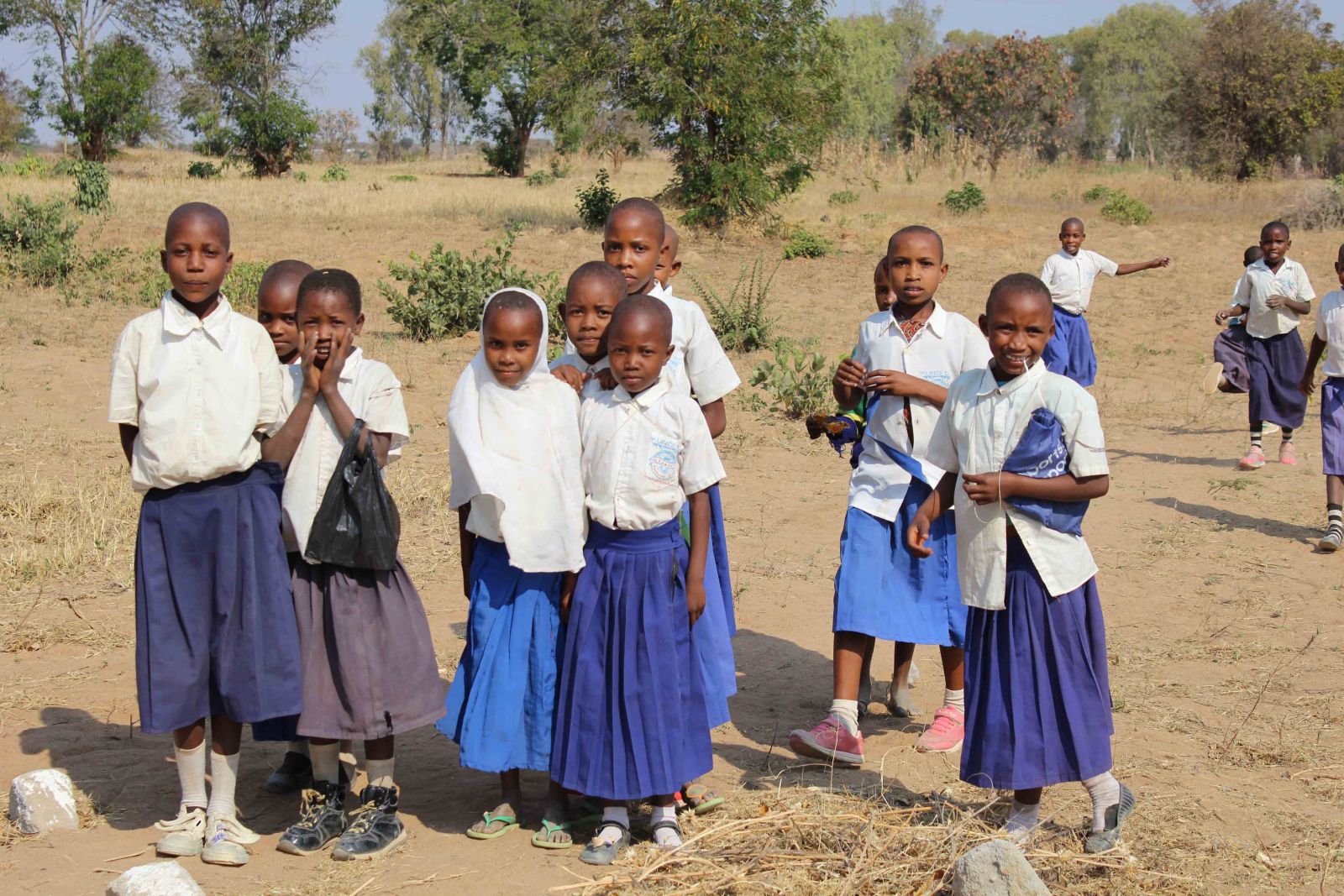RESULTS UK recently led a delegation of four parliamentarians to Tanzania to visit programmes working to improve nutrition and education. We were joined by Roberta Blackman-Woods MP, Lord David Watts, Henry Smith MP, and David Linden MP, members of parliament from the three largest parties. Over the course of the week, the delegates met with high level decision makers such as the Ministers of Finance and Health, the Deputy Minister for Education, members of the multi-stakeholder platform for nutrition, parliamentarians from the Parliamentary Women’s Caucus, allies from the Global Partnership for Education, DFID Tanzania, and most importantly with communities to understand the linkages between nutrition, health and education. It was through these interactions they we got an insight into the progress achieved so far, and challenges that remain.
Since having joined the Scaling up Nutrition movement, Tanzania has made commendable progress in reducing stunting from 43% in 2009 to 35% in 2014. However, around 7 million children in the country are still stunted, with massive disparities across regions. Anaemia in women of reproductive age (40%) also continues to be a challenge. In addition, just over 40% of the infants 0-5 months old are exclusively breastfed, and infant and young child feeding practices need to be improved further.
To get a sense of these challenges, we visited a Community Health Service Market under the ‘Enhancing Nutrition Services to Improve Maternal and Child Health (ENRICH)’ programme, which seeks to improve access to health services to the most marginalised sections in the community. There, we interacted with women and men’s groups acting as a medium for health and nutrition information promotion. We also visited a Citizen Voice Action project to observe how empowered and motivated citizens are attempting to bridge the gap between the government’s health system and their community to ensure they are not left behind in receiving essential health services. This included a health dispensary that was being built through community contributions, because the nearest health outpost was miles away from the village.
Tanzania has made significant efforts to improve access to education by abolishing fees in primary and secondary schools, and is trying to bring down pupil-teacher ratios. School enrolment rates in the country have risen from 76% in 2015 to 97% in 2016. Despite these positive developments, quality of basic education, school retention, and overcrowding in classes (particularly at primary level) continue to pose a challenge.
During this trip, we visited a DFID supported School Readiness programme which prepares marginalised rural children for entry into primary school, and also met with school children and teachers at a rural Primary school. We saw that overcrowding still continues to be a challenge in schools, as does support for children with special needs. We were also struck by the absence of school meals for children. You can’t study if you’re hungry. We also got to visit a Secondary school, to meet with students for a very engaging discussion on important local and global issues. These ranged from extracurricular activities, sex education, the Sustainable Development Goals and how we are going to achieve them, school uniforms, and even mental health.

At the end of the week we identified some of the positive steps that have been taken to improve nutrition and education:
- High-level commitment to nutrition. Nutrition now sits within the Prime Minister’s Office (PMO) as a cross-sectoral issue. Tanzania very recently launched its 5-year Multi-Sectoral Nutrition Action Plan, and a high-level steering committee at the PMO provides oversight for its delivery;
- Strong leadership on education: The Prime Minister has pushed hard to improve school enrolment, reflected in the abolishing of school fees that could be a critical deterrent to enrolment and school retention;
- Strong coordination: The government have created a multi-stakeholder platform that brings government, donors, civil society, and the private sector together to develop and implement policy and programmes relevant to nutrition and education. This is coordinated across national and sub-national levels;
- The young, and the motivated – Around 55% of Tanzanians are younger than 20 years. From our interaction with the bright and motivated secondary school students, and communities as active change agents, we saw first-hand how education and opportunity could bring positive change in the lives of Tanzanians.
However, there are also a number of areas which need to be addressed to achieve Tanzania’s vision for nutrition and education. They include:
- Financing – Currently a 70% funding gap exists on the delivery of the Tanzanian Multi-sectoral action plan on Nutrition. While domestic resources are envisaged to be increased, donors, private sector, and multi-laterals have to work together to bridge such gaps;
- Language barrier at preschool vs. primary and secondary school, and support for disabled children – Young pre-schoolers generally communicate in their local dialects at home. The sudden change to Kiswahili in primary school poses a big challenge which is further made worse by a change to English as a medium of instruction at secondary schools. Accessibility, support, and education aids for disabled children also vary widely across regions, but require an overall improvement;
- Health services outreach and human resources for health– Government health facilities were seen to be far from the villages we visited, and there were no designated community health workers. However, we were told in our meeting with the Ministers that a plan is being implemented to introduce 2 community health workers per village;
- The other issues which we found needing more attention included Sexual and reproductive health and menstrual hygiene, and also water and sanitation hygiene. Without adequately addressing these, improvements across both, nutrition as well as education, particularly amongst girls, will be limited.
The UK support important education and nutrition (stunting reduction) programmes in Tanzania, and work closely with the government and stakeholders on the ground. However, clear opportunities exist for this impact to be maximised that will require additional efforts from the Government of Tanzania and other global, national, and local partners.